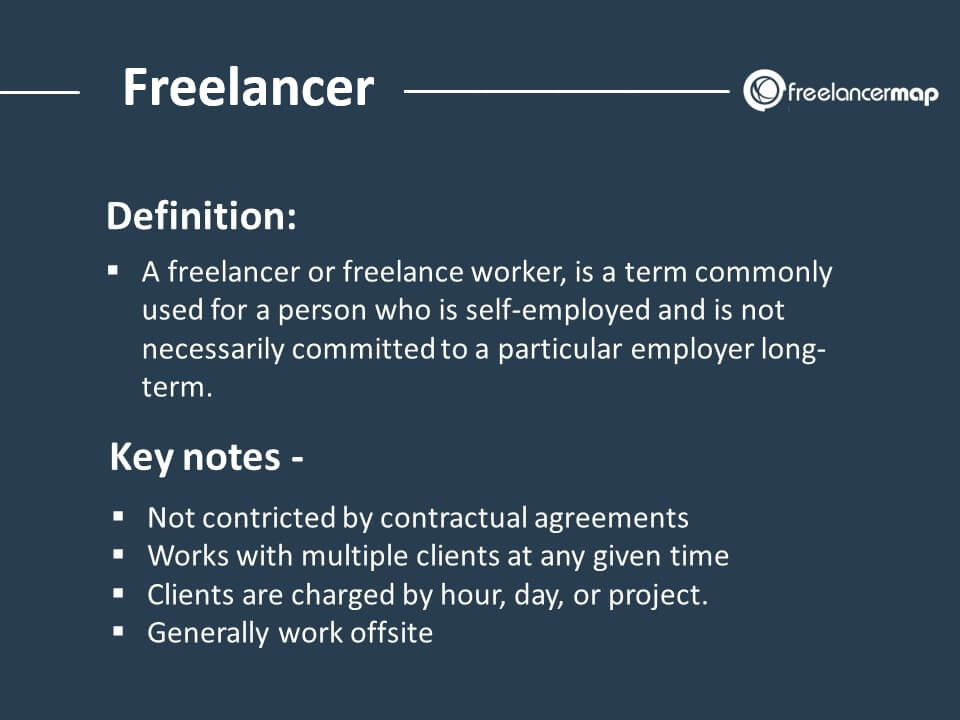What Is Freelancing /freelancing jobs? Basics, Examples, and Popular freelancing Jobs in 2024
economy is continually evolving, driven by technological advancements and changing work patterns
What is Freelancing /freelancing jobs ?

Freelancing is a flexible work arrangement where individuals offer their services to clients on a project-by-project basis. Unlike traditional employment, freelancers and freelancing jobs are self-employed and responsible for managing their own work schedules, taxes, and finances.

How Does Freelancer Work from home ?
- Find Your Niche: Identify your strengths and specialize in a specific area, like web development, graphic design, content writing, or social media marketing.
- Build Your Portfolio: Showcase your expertise by creating a website or using online platforms like Upwork or Fiverr to display your past projects and testimonials.
- Market Yourself: Network with other freelancers and potential clients. Utilize social media, content marketing, and email marketing to promote your services.
- Land Projects: Seek out clients by searching online marketplaces, cold emailing, or leveraging referrals. Be clear about your rates, project timelines, and communication styles.
- Deliver Quality Work: Prioritize client satisfaction by consistently delivering high-quality work that meets deadlines.
- Get Paid: Utilize invoicing systems to track your hours and send professional invoices to clients.
Benefits of Freelancing carrier remote work /online jobs:
- Flexibility: Enjoy the freedom to work from anywhere at any time.
- Autonomy: Be your own boss and make your own decisions.
- Diverse Projects: Work on a variety of projects to keep your skills sharp.
- Higher Earning Potential: Set your own rates and earn more than traditional jobs.
- Work-Life Balance: Achieve a better balance between work and personal life.
Disadvantages of Freelance jobs /work from home :
1-Financial Insecurity: Income can fluctuate, especially during slow periods.
2-Isolation: Working alone can lead to feelings of loneliness.
3-self-Discipline: Requires strong self-discipline to stay motivated and productive.
4-Administrative Tasks: Handling taxes, insurance, and marketing can be time-consuming.
6 Important Statistics of gig economy Freelancers Should Know in 2024:
Global Freelancer Market Growth:
- The global freelance workforce is projected to grow significantly, with millions of individuals embracing this flexible work arrangement.
Remote Work Revolution:
- The rise of remote work has further fueled the growth of freelancing, allowing professionals to work from anywhere in the world.
Diverse Freelancer Profiles:
- Freelancers come from various backgrounds and skill sets, including IT, design, writing, marketing, and more.
Earning Potential:
- While income can vary, many freelancers earn competitive rates, often surpassing traditional employment salaries.
Financial Management:
- Freelancers are responsible for managing their own finances, including taxes, insurance, and retirement savings
Platform and Tool Usage:
- A variety of platforms and tools are available to help freelancers manage their work, connect with clients, and streamline their business operations.
Freelancing: Is It Right for You?
Challenges of Freelancing:
- Inconsistent Income: Earnings can fluctuate depending on project availability.
- Lack of Benefits: No employer-sponsored benefits like health insurance or retirement plans.
- Isolation: Working alone can lead to feelings of isolation.
- Time Management: Need strong time management skills to balance multiple projects.
- Marketing and Networking: Must actively promote your services and build a client base

Be- your- own- boss
Popular Freelancing Fields!
2
Design & Development
- Graphic designer
- Web designer
- Web developer
- UX/UI designer
- Mobile app developer
- Game developer
- Animator
- Illustrator
- Logo designer
- Product designer
3
Marketing & Sales
- Digital marketer
- SEO specialist
- PPC specialist
- Email marketer
- Social media marketer
- Sales representative
- Business development manager
- Public relations specialist.
4
Photography & Videography
- Photographer
- Videographer
- Drone operator
- Photo editor
- Video editor
- Virtual assistant
- Accountant
- Bookkeeper
- Business consultant
- Financial advisor
- Life coach
- Career coach.
5
IT & Tech
- IT support specialist
- Network engineer
- Cybersecurity specialist
- Data analyst
- Data scientist
- Software developer
- Tutor
- Voice actor
- Musician
- Artist.

Balance- work- and- life
How to Become a Freelancer!
- Identify Your Skills and Interests: Determine what you’re good at and enjoy doing.
- Build a Portfolio: Showcase your work and demonstrate your skills.
- Create a Professional Online Presence: Set up a website or use freelancing platforms.
- Network: Connect with potential clients and other freelancers.
- Set Rates: Research industry standards and determine your pricing.
- Manage Your Finances: Keep track of income, expenses, and taxes.
Tips for Successful gig Economy

Tired of the 9-to-5 Grind? Figuratively into the World of Freelance!
Sick of punching that clock? Ready to be your own boss? Freelance work is your ticket to freedom!
Why Freelance?
- Flex Time: Work whenever, wherever. Pajamas optional.
- Boss Mode: You’re the CEO of your own hustle.
- Endless Possibilities: From writing to coding, design to marketing, the world’s your oyster.
- Cash In: Set your own rates and watch the dough roll in.
How to Get Started:
- Know Your Thing: What are you good at? Writing, coding, design?
- Build Your Brand: Create a killer portfolio and online presence.
- Network Like a Pro: Connect with other freelancers and potential clients.
- Level Up Your Skills: Keep learning and growing.
- Find Your Gig: Use platforms like Upwork, Fiverr, or freelance marketplaces.
Embrace the Future of Work
The gig economy is booming! With remote work and online jobs on the rise, now’s the perfect time to take the leap.
So, what are you waiting for? Ditch the cubicle and start living the freelance life!

Your questions answered
FAQS
What is Freelancing?
Freelancing is a flexible work arrangement where individuals offer their services to clients on a project-by-project basis. Instead of working for a single employer, freelancers work independently, setting their own hours and determining their workload
How to Become a Freelancer?
Identify Your Skills:
- Self-Assessment: What are you good at? What skills can you monetize?
- Skill Development: Consider taking online courses or workshops to enhance your skills.
Build Your Brand:
- Online Presence: Create a professional website or portfolio to showcase your work.
- Social Media: Use platforms like LinkedIn and Twitter to connect with potential clients.
Choose a Niche:
- Specialization: Focus on a specific area of expertise to attract targeted clients.
Set Up Your Workspace:
- Dedicated Space: Create a productive workspace at home or in a co-working space.
Legal and Financial Considerations:
- Business Structure: Decide on a suitable business structure (sole proprietorship, LLC, etc.).
- Taxes: Understand tax obligations and consult with a tax professional.
Best Freelancing Platforms
- Upwork: A popular platform for a wide range of freelance services.
- Freelancer: Offers a variety of projects and contests.
- Fiverr: A marketplace for smaller, more affordable gigs.
- Guru: Focuses on long-term projects and partnerships.
- Toptal: A platform for top-tier freelance talent.
How to Find Freelance Clients
- Networking: Connect with other freelancers, potential clients, and industry professionals.
- Cold Emailing: Reach out to potential clients with personalized pitches.
- Social Media: Use platforms like LinkedIn to connect with potential clients.
- Freelance Platforms: Utilize online platforms to find and bid on projects.
- Word-of-Mouth: Referrals from satisfied clients can lead to new opportunities
How Much Can I Earn as a Freelancer?
Your earnings as a freelancer can vary widely depending on factors such as your skills, experience, niche, location, and the number of projects you take on. Experienced freelancers can earn substantial incomes, while beginners may start with lower rates.
Key Factors Affecting Earnings:
- Skill Level: Highly skilled freelancers can command higher rates.
- Niche: Specialized skills in high-demand niches can lead to higher earnings.
- Client Base: Building a strong client base can ensure a steady income.
- Time Management: Efficient time management is crucial for maximizing earnings.
- Negotiation Skills: Effective negotiation can help you secure better rates.
Remember, building a successful freelance career takes time, effort, and dedication. By following these tips and continuously improving your skills, you can achieve financial freedom and professional satisfaction as a freelancer.
